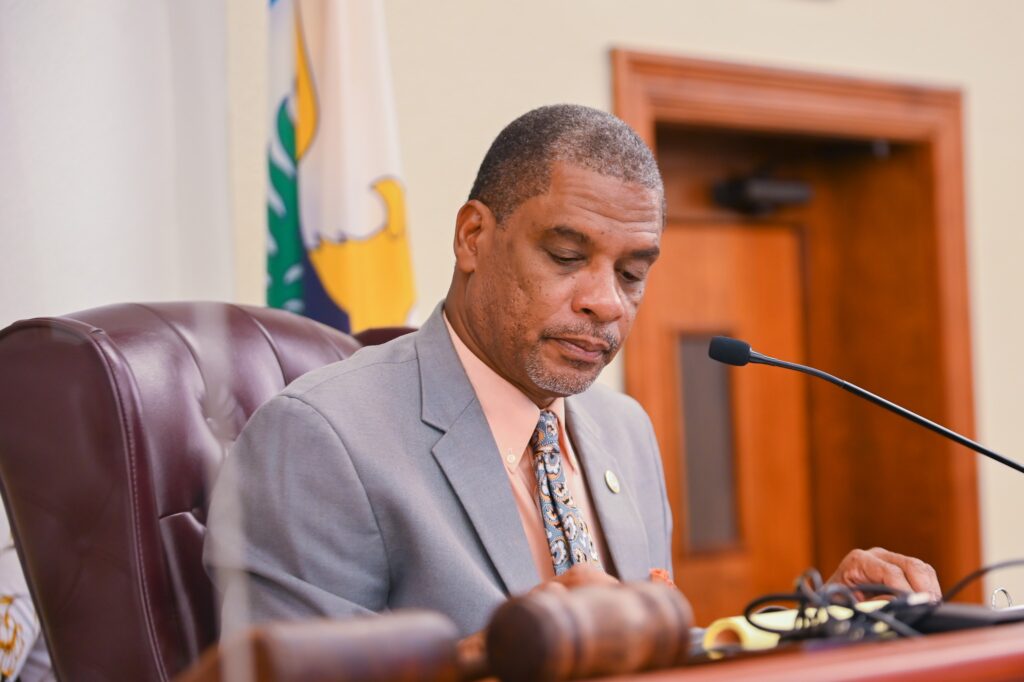
In perhaps his last act before he leaves office, Sen. Kurt Vialet will introduce a bill proposing a nearly $5,000 increase in the minimum salary for government employees when the Senate reconvenes next week, his office announced Wednesday.
Bill No. 34-0388 would increase the minimum salary from $27,040 to $32,000, would affect an estimated 971 employees, and cost the government an additional $4.3 million, according to Vialet.
The Senate is scheduled to reconvene Dec. 29 following a marathon session Tuesday that ran more than 10 hours.
The 35th Legislature will be sworn in just two weeks later, on Jan. 10. However, Vialet will not return after forgoing a Senate bid to run for governor and losing to incumbent Albert Bryan Jr. in November’s General Election.
Vialet co-sponsored a bill in 2018 that raised the minimum salary for public employees from $20,000 to the current $27,040. Since that last adjustment, the cost of living has significantly increased due to the rise in the price of commodities like groceries and utilities, the senator said in a press release announcing his new bill.
The most current information presented by the Office of the Governor, Bureau of Economic Research, USVI Consumer Price Index reported that the cost of living in the territory is up 7.3 percent overall, and food costs rose 20.7 percent between January 2020 and January 2021, according to Vialet.
“Businesses are able to pass on the cost of inflation to the consumer, however, the labor force continues to struggle to maintain a decent quality of life while adjusting to the fluctuations in the marketplace,” said Vialet.
Additionally, the U.S. Energy Information Administration reported that “the average price of electricity paid by U.S. Virgin Islands residents was about 43 cents per kilowatt-hour in mid-2021, more than three times higher than the U.S. average power price of 14 cents,” the release stated.
The cost per kilowatt-hour in the territory is now 56 cents but is currently being subsidized by the GVI to the tune of $4 million per month, added Vialet.
Vialet’s bill follows the release Dec. 14 of the annual Kids Count data book produced by the St. Croix Community Foundation and sponsored by the Annie E. Casey Foundation. It found that the median household income in the Virgin Islands was $40,408 in 2019, compared with a national average of $67,521, and that the average hourly wage was $23.07 as of May 2021, compared to a national average of $28.01.
The median incomes for 2021 were: $66,200 on St. John, $61,600 on St. Thomas, and $54,900 on St. Croix, according to the Kids Count data.
Vialet has previously sponsored and co-drafted various legislation that concentrated on education, the economy, and healthcare, the release noted.
Among them was the initiative to grant full-time status to contract/part-time employees of the public sector, the government of the Virgin Islands, its semi-autonomous agencies, and independent instrumentalities. This population now receives medical and retirement benefits that they would have otherwise not qualified for, Vialet said.
The Senate is scheduled to reconvene Dec. 29 at 9:30 a.m. at Ottley Legislative Hall on St. Thomas to conclude the session that began on Tuesday.


